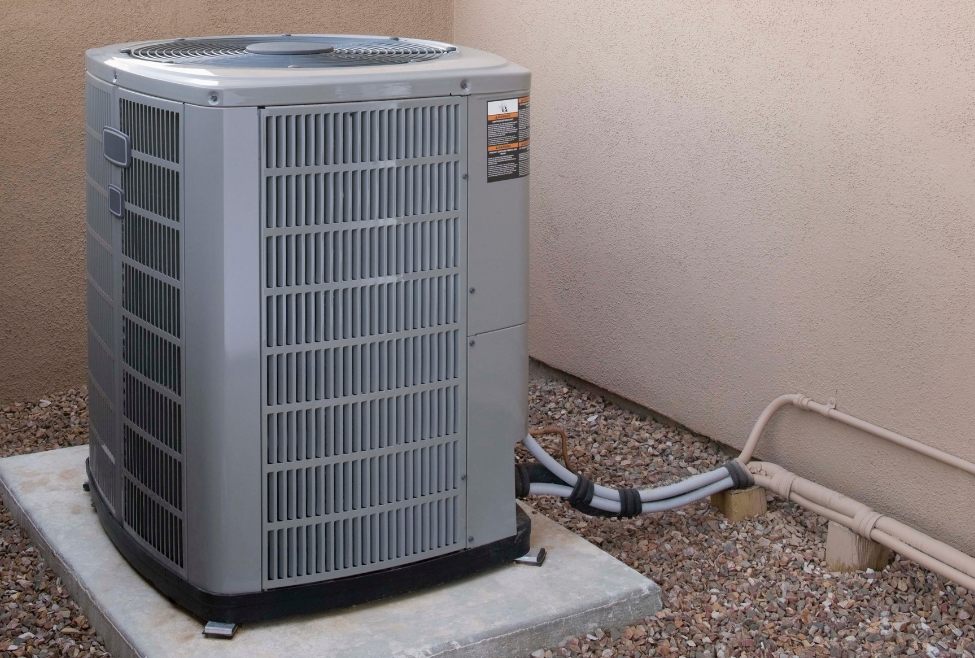
Warning Signs Every Homeowner Should Know
A failing AC capacitor is one of the most common culprits behind malfunctioning air conditioners—especially during peak cooling season. But how do you know if that’s the issue? In this guide, we’ll answer the question: What are the symptoms of a bad AC capacitor? We’ll also explain what causes it, why it matters, and when to contact a pro for help.
Whether you live in New Bedford, Fall River, Taunton, Dartmouth, Somerset, or Fairhaven, the signs are often the same—and the sooner you act, the better.
What Does an AC Capacitor Do?
Before we get into the symptoms, it’s helpful to understand what this component does. Your AC capacitor stores and delivers the energy your system needs to power up and keep running. It’s essential for starting the compressor, blower motor, and fan motor—basically, everything that makes your air conditioner work efficiently.
When it goes bad, those parts can’t function properly—and that leads to noticeable problems.
Common Symptoms of a Bad AC Capacitor
1. AC Struggles to Start or Doesn’t Start at All
If your air conditioner won’t kick on or hesitates before running, a failing capacitor may be the reason. This is a clear red flag that it’s not delivering the electrical boost your system needs to start.
2. Warm Air Blowing from the Vents
Another telltale symptom of a bad AC capacitor is weak or warm airflow. Without the capacitor powering your compressor and fan, your AC can’t cool the air effectively—even if the rest of the unit is in working order.
3. Frequent System Shutdowns
Does your air conditioner start and then shut off unexpectedly? Intermittent power loss could be caused by a failing capacitor disrupting the flow of electricity.
4. Clicking or Humming Noises
If you hear a clicking sound when the AC tries to start—or a persistent humming—your capacitor might be trying (and failing) to energize the motor.
5. Increased Energy Bills
A weak or failing capacitor causes your AC to work harder to cool your home, which means more energy use and higher monthly bills.
What Causes Capacitor Failure?
AC capacitors can go bad for a variety of reasons, including:
- Overheating from high summer temperatures
- Power surges
- Age-related wear and tear
- Improper maintenance
That’s why routine AC maintenance is key to catching early signs of trouble before they become costly repairs.
Should You Replace a Bad Capacitor Yourself?
While DIY videos might make it seem simple, capacitor replacement is best left to a professional. It involves high-voltage components, and incorrect handling can be dangerous. Instead, consider scheduling an AC repair with a trusted HVAC technician.
Don’t Ignore the Warning Signs
A failing capacitor can lead to serious damage if ignored—especially to your compressor, which is one of the most expensive parts of your AC system. If you’re noticing any of these symptoms, it’s time to act.
We offer expert air conditioner services in Westport, Raynham, Acushnet, Seekonk, Swansea, and Dighton, and we’re ready to help you stay cool and comfortable.
Call Family Heating and Cooling Today
Our licensed technicians provide fast, affordable service backed by decades of HVAC experience. Whether your capacitor needs a quick replacement or your whole system requires attention, we’ve got you covered.
Call Family Heating and Cooling or schedule your service online and keep your home cool and energy-efficient all summer long.
FAQs
Is it worth replacing the capacitor on an AC unit?
Yes, in most cases, replacing the capacitor on your AC unit is well worth it. A faulty capacitor can cause your air conditioner to run inefficiently—or not at all—which can lead to more serious (and expensive) problems like compressor failure. Swapping out a bad capacitor is a relatively quick and affordable fix that restores performance and extends the life of your HVAC system.
How much does it cost to have an AC capacitor replaced?
The cost to replace an AC capacitor typically ranges between $100 and $300, depending on your system type and labor costs. While the part itself isn’t expensive, it’s important to have it installed by a licensed HVAC technician to avoid electrical hazards or incorrect installation that could damage your unit.
How long will an AC capacitor last?
On average, an AC capacitor will last 8 to 15 years, but lifespan can vary depending on factors like outdoor temperature, system usage, and maintenance history. Power surges and overheating can shorten its life, so regular inspections and preventive maintenance are key to avoiding premature failure.
Will AC still run with a bad capacitor?
In some cases, your air conditioner might still run with a weak or failing capacitor—but not for long. A bad capacitor makes it harder for the system to start and stay running, which leads to frequent cycling, reduced cooling, higher energy bills, and eventually a complete system shutdown. Running your AC in this condition also puts strain on the compressor and fan motor.
Can I replace an AC capacitor myself?
While it’s technically possible for a homeowner to replace a capacitor, we don’t recommend it unless you have electrical experience. AC capacitors hold a high-voltage charge even when the unit is turned off, and improper handling can lead to injury or system damage. It’s always safest to leave capacitor replacement to a trained HVAC professional.
Need fast and reliable AC repair or capacitor replacement? Schedule service with Family Heating and Cooling and keep your system running strong all season long.






